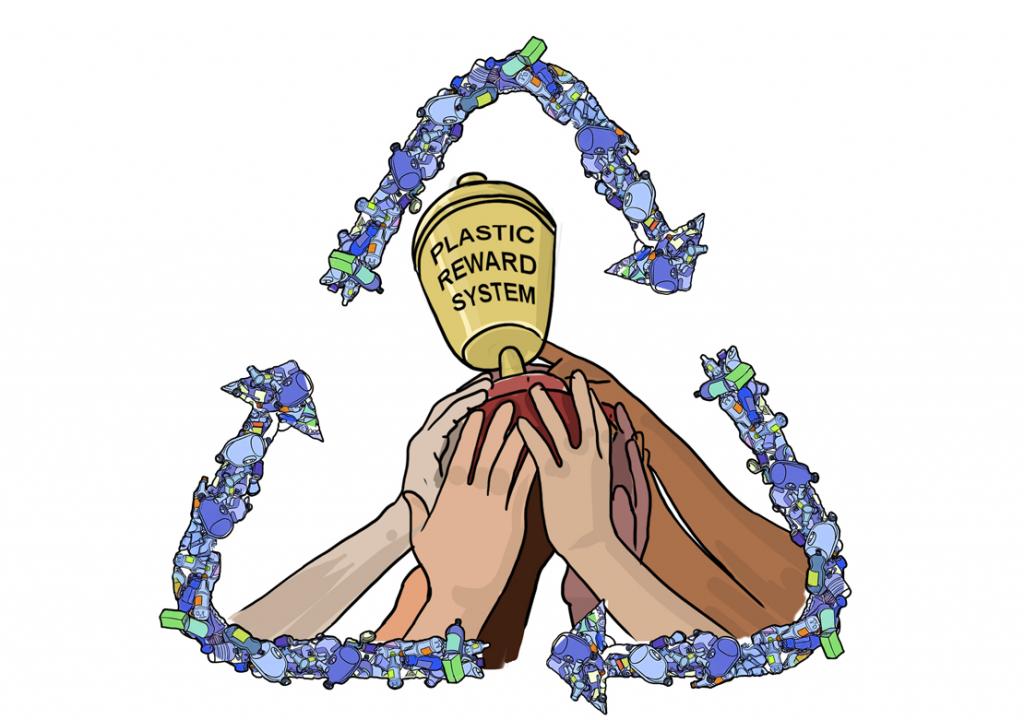
How our daily waste habits are putting plastic on our plates and how a rewarding model can eliminate it
According to the Central Pollution Control Board, India generated over 3.47 million tonnes of plastic waste in 2019–20, and continues to rise unchecked.
A 2021 study conducted by Indian Institute of Technology, Delhi had detected microplastics not only in rivers and lakes, but also in treated drinking water in major cities like Delhi and Mumbai. This reveals that even water deemed safe for households and consumption isn’t entirely plastic-free.
Globally, the World Wildlife Fund’s No Plastic in Nature report has estimated that the average person could be ingesting up to 5 grams of microplastics per week—roughly the size of a credit card.
Yes, that means you may have eaten plastic last night! This is not just because of faraway ocean waste, but very likely due to the garbage piling up in your own neighbourhood. Studies into Indian urban cities revealed the ugly truth—microplastics present in overflowing landfills and sewage clogged with plastic. Over time, this mismanaged waste breaks down into microplastics that seep into the soil, water, and air, and eventually, into our food.
This alarming crisis is not just about plastic. It is about responsibility. Until our mindset towards waste accountability changes, laws will fail.
Although there is a strict need for stringent laws and policies, we also need a solution that motivates action in individuals, not through punishment, but by rewarding it. A system that makes responsibility feels worth it.
What is the Plastic Reward System?
This is where the ‘Plastic Reward System’ steps in. It turns waste management into a value-driven process for both citizens and industries. The Plastic Reward System encourages industries and communities to treat plastic as a resource instead.
At the industrial level, companies that recycle plastic into useful products like 3D printer filaments or convert it into fuel through pyrolysis receive tax credits. Those who exceed their targets can even sell extra credits to other companies, creating a plastic credit market. This transforms waste management into a viable, profitable model.
At the community level, schools, resident groups, and local cooperatives can set up plastic collection points and track the gathered amount of waste. Their efforts earn plastic credits, redeemable as cash incentives, school supplies, or community benefits. Whether it’s recycled bricks, tiles, or bags, innovation at the ground level is encouraged and celebrated. This system transforms plastic from a nuisance into a shared mission. It builds a culture where doing the right thing isn’t just expected, it’s rewarded.
Plastic is just the symptom. Responsibility is the cure—and that starts with all of us.